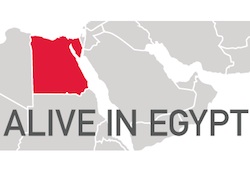 Brian Conley and Steve Wyshywaniuk co-founded Small World News in 2005 to help usher into the internet and onto the world a new kind of journalism. One that’s not biased by way of coverage by foreigners unfamiliar with the context and one where the stories aren’t broadcast via a lens and a reporter paid for by CNN, Fox News, Al JAzeera, or the BBC.
Brian Conley and Steve Wyshywaniuk co-founded Small World News in 2005 to help usher into the internet and onto the world a new kind of journalism. One that’s not biased by way of coverage by foreigners unfamiliar with the context and one where the stories aren’t broadcast via a lens and a reporter paid for by CNN, Fox News, Al JAzeera, or the BBC.
Conley and Wyshywaniuk’s journalism is one where they train locals to become journalists and report on the happenings in their own communities with their own words. Or, as Small World News says it, the company “focuses on developing the capacity of citizens to engage with the international community in crisis areas and conflict zones.”
That engagement happens by way of audiovisual stories collected from individuals to which Small World News provides “affordable digital technologies and professional training.” Small World News turns would be citizen journalists into journalists. They, in turn, collect stories, which Small World News helps them distribute through the internet and social media.

Subscribe for daily Tubefilter Top Stories
You’re probably familiar with Small World News’ flagship effort Alive in Baghdad. From 2005 to 2009 the site and its accompanying videos became a must read/watch news source for updates from the war in Iraq.
In the past two years the company’s had to find ways to expand the model to other regions, as well as adapt to using smaller budgets and rely on fewer personnel. (A big reason Alive in Baghdad had a tough time keeping up with a consistent production schedule was because the Bureau Chief had to go into hiding in Syria and then Sweden after receiving threats related to his work with the program.)
Under a nimbler production model that leverages social media and focuses on more than just video, Small World News has established citizen run news bureaus in Bahrain, Egypt, and Libya (which currently runs out of the war zone in Benghazi and posts three videos per week on “topics ranging from homemade weapons on the front lines to children volunteering to be traffic cops”).
I caught up with Conley a few weeks ago to ask him about his experience launching and maintaining Alive in Egypt, but the following is a good crash course in how the Alive in properties come to be:
Tubefilter: How does Alive in Egypt work?
Brian Conley: Alive in Egypt was started as a collaborative translation and distribution project, so that the international community could have a better understanding of events in Egypt and the interests of the Egyptian people. We were thinking of doing something similar to speak2tweet but were having trouble finding an easy voice hosting service to work with. In the middle of looking into that we realized that google had set up a great voice service that would auto-tweet links to the files as they appeared. After a bit of investigation, I realized that there was no translation effort, and guessed that this would likely be a big missing link. We soon realized that google was willing to cede the translation effort to us, and we just got going in earnest.
TF: How’d you get the project up and running so fast?
BC: We got it up fast by using twitter to leverage access to an international assortment of volunteers. Te call went out over twitter, while I simultaneously started setting up a google spreadsheet to host the translation document. After we began getting volunteers, we started organizing them over skype chats, similar to the “situation room” set up during the Haiti earthquake crisis.
I called Small World News’ tech team and asked them about the best options to start setting up a site, and as always, things like DNS propagation were one of the highest rate-limiting factors preventing us from getting the site going more quickly.
Pretty quickly we realized we in fact had more translations than we could process. It turned out that the biggest bottleneck was taking content that was translated and getting it out to the website to get published.
TF: What type of submissions are you getting and is the site affecting the dialogue or painting a better picture about what exactly is going on?
BC: I think the mere existence of the content online, and presented in a way that was more consumable by the international community greatly affected the dialogue. I think that especially once we started to aggregate video from YouTube as well it began to paint a really great picture of whats been happening there. It has definitely catalyzed things in a way that is more interactive and participatory than perhaps even Al Jazeera has been, much less the older traditional news outlets.
TF: What are next steps?
BC: In terms of next steps, now that Mubarak has stepped down, we’re looking to re-position Alive in Egypt to be the platform or window for the international community to follow Egypt’s transition to democracy, eventually culminating with a citizen-led election monitoring effort by Egyptians on the ground.
Stay tuned to Small World News for updates on and links to all the Alive in sites.








